- Home
- Catherine Hapka
Yatimah
Yatimah Read online
HORSE DIARIES
#1: Elska
#2: Bell’s Star
#3: Koda
#4: Maestoso Petra
#5: Golden Sun
#6: Yatimah
This is a work of fiction. Names, characters, places, and incidents either are the product of the author’s imagination or are used fictitiously. Any resemblance to actual persons, living or dead, events, or locales is entirely coincidental.
Text copyright © 2011 by Catherine Hapka
Illustrations copyright © 2011 by Ruth Sanderson
Photo credits: © Bob Langrish (this page); Library of Congress (this page, this page and this page).
All rights reserved. Published in the United States by Random House Children’s Books, a division of Random House, Inc., New York.
Random House and the colophon are registered trademarks of Random House, Inc.
Visit us on the Web! www.randomhouse.com/kids
Educators and librarians, for a variety of teaching tools, visit us at
www.randomhouse.com/teachers
Library of Congress Cataloging-in-Publication Data
Hapka, Cathy.
Yatimah / Catherine Hapka ; illustrated by Ruth Sanderson. — 1st ed.
p. cm. — (Horse diaries; [6])
Summary: In a mid-ninth-century Bedouin camp in the Arabian Desert, a horse is born to a prized Arabian war mare who dies during the birth, and the foal is raised with dreams of continuing her mother’s glory as a war mare. Includes facts about Arabian horses and their importance to Bedouin tribes.
eISBN: 978-0-375-89764-1
1. Arabian horse—Juvenile fiction. [1. Arabian horse—Fiction. 2. War horses—Fiction. 3. Horses—Fiction. 4. Bedouins—Fiction. 5. Middle East—History—9th century—Fiction.] I. Sanderson, Ruth, ill. II. Title.
PZ10.3.H2258Yat 2010 [Fic]—dc22 2009053906
Random House Children’s Books supports the First Amendment and celebrates the right to read.
v3.1
In memory of Lance,
an Arabian for the ages
—C.H.
For Mackenzie and Michelle
—R.S.
CONTENTS
Cover
Other Books in This Series
Title Page
Copyright
Dedication
Epigraph
1
A Bedouin Camp in the Arabian Desert, Ninth Century AD
2
Two Months Old
3
A Desert Evening
4
Inside the Tent
5
New Experiences
6
Moving On
7
Memories and Changes
8
Visitors and Decisions
9
Getting Acquainted
10
The Raid
Appendix
Coming Soon
About the Author
About the Illustrator
Other Books in This Series
“Oh! if people knew what a comfort to horses a light hand is …”
—from Black Beauty, by Anna Sewell
A Bedouin Camp in the Arabian Desert, Ninth Century AD
My first memory was of human hands upon me, helping to pull me free of my mother’s body. It was night, and a low moon hung round and pale in the clear dark sky. For a moment I lay there blinking upon the sand, not knowing who or what I was or what was happening.
“Praise Allah, the foal is alive,” a human voice said as the hands left me.
“Never mind the foal,” another voice called out from very close by. It belonged to a tall man with a bristly black beard and weather-beaten skin that told of many years beneath the desert sun. The harsh, anxious sound of his voice made my ears twitch, even though I didn’t understand what the words meant. “Something is wrong. Sarab is bleeding too much!”
“Are you sure?” a third voice said. “It was a difficult foaling.…”
There was movement, fabric swishing past me as more humans came to bend over the mare lying still on the sand.
I blinked my eyes, swiveling my ears around. There was so much to see and hear that it was difficult to focus. The sky overhead was dark except for the bright moon and a dusting of stars. A breeze tickled the whiskers of my muzzle, and the air felt cool though the sand beneath my body was warm. Nearby stood a large tent made of camel hide, and I could smell and hear other animals moving around on the far side of a grove of palm trees. I wanted to react to all of it, but I didn’t know what to do first.
Then a human girl kneeled down in front of me, blocking my view of all else. Her hands reached for me, stroking my face and neck. She had a light touch, like wind through an oasis, and her dark eyes were large and kind.
“It’s a filly, Father,” the girl called out in a voice filled with wonder. “She’s perfect!”
“Keep her out of the way, Safiya.” The older man’s voice still sounded harsh. “Sarab is in trouble.”
Safiya looked toward the mare. “Is she going to be all right?”
“I don’t know. It is for Allah to decide now.”
The girl stayed where she was, crouched over me. Her eyes turned back to mine, ignoring the commotion going on near the mare.
“It’s all right, little one,” she whispered, stroking the dampness out of my fuzzy foal coat. “Your mama is going to be all right. Allah wouldn’t let anything happen to Father’s favorite war mare.”
I still didn’t understand the words. But the girl’s voice sounded uncertain. That made me curious enough to stretch my long neck forward until I could snuffle her face, seeking the scent of her. The girl laughed and pushed my nose gently away.
Another man rushed past, younger than the others and with a lighter beard. Sand flew up from beneath his running feet and pinged against my hide. That made me raise my head and snort in surprise. The effort of doing so tipped me over onto my side.
But I quickly righted myself. That was when I noticed a pair of long legs folded beneath my body. Could they belong to me?
Oh yes! They twitched, and I suddenly understood what they were meant for. Lurching forward onto my sternum, I flung my forelegs out and then scrambled upward.
“Oh! She’s trying to stand already!” Safiya exclaimed. She cried out as I swayed and fell back to the sand.
But I was already trying again. This time I remembered to organize my hind legs as well. A second later, I was standing!
I let out a nicker of triumph. The girl reached out to steady me as I stood swaying there, all four legs splayed in different directions. I leaned against her for a moment, grateful for the help.
The other humans weren’t paying any attention to me. There were four or five of them, all bent over the horse still lying on the sand: my dam. Her sides were heaving, her black coat slick with sweat. I couldn’t see much else of her. Then someone moved, his pale robes swirling out of the way, and I finally saw my dam’s face. She had a fine, chiseled head with a jagged blaze running down it. Her large eyes were rolling and staring. Her nostrils flared with each labored breath.
I knew I wanted to get closer to her. To do that, I had to figure out how to move. My legs trembled, seeming to know what to do. I took a wobbly step forward, nearly falling again.
“Keep her away!” one of the men barked out.
Young Safiya put gentle hands on my neck and shoulder. “Stay back, little one,” she said. “They’re trying to help your mama.”
But there was to be no help for my dam. A few minutes later, her eyes closed. Her graceful neck went limp on the sand. And the tall, bearded man let out a heartbroken cry that echoed across the desert.
“I’m sorry, Father,” one of the younger men said. “
Sarab was a fine mare. But at least you still have her daughter.”
“Yes.” Another man stepped toward me for a closer look. “And look, Nasr, she has her dam’s fine head and long legs. Sarab will live on in this one.”
“That’s right, Father,” Safiya put in. “Isn’t she beautiful?”
But her father, Nasr, did not turn toward me. “I do not wish to look upon the foal that took Sarab’s life,” he said, his voice shaking with emotion. “Find it a nurse mare and leave me alone.”
He kneeled down beside Sarab’s body as the other humans exchanged glances. I understood none of what was happening, though I could sense that their faces and voices were troubled.
But I was troubled by something else. Hunger. Now that I was up and moving around, I felt my belly begin to grumble. Instinct told me that I needed to find food soon. But where?
I turned and nudged at Safiya, seeking any sign of something to fill my belly. She patted me and pushed me away, so I turned to the next closest human, one of the younger men. When I nosed at his robes, he glanced down at me.
“The filly needs milk,” he said. “Shall we see if Jumanah will accept her?”
“That’s a good idea,” another said. “Jumanah is a strong, stout mare and always has plenty of milk. And her colt is only a few days old.”
“Yes, the filly can share his mother, or have her all to herself for all I care,” someone else added. “What need have we of another colt?”
“Hush, brother,” the first man said. “All horses are gifts from Allah. We can use the colt as a pack animal when he’s older, or use him for breeding if he is worthy, or perhaps trade him away for something we need. When last we parted from our cousin Rami and his family, they were complaining that several of their horses are getting too old to carry much weight during their moves. I’m sure they’d be glad to trade us a few sheep for a strong, stout, tall colt like that one.”
The other man shrugged. “You’re right, but this filly is much more valuable than any colt, especially if she grows up to be a great war mare like her dam.” He shot a look toward Nasr, who was still bent over Sarab’s body. “No matter what Father might think of her right now.”
The first man hurried off into the darkness, returning moments later with two horses walking behind him. One was a foal not much older than I was, a tall chestnut colt. But I paid little attention to him. My nose twitched as I caught the scent of the other horse, a flea-bitten gray mare with a robust build and a calm expression.
I let out a cry of eagerness and leaped toward her, almost toppling over. Several strong hands caught me and guided me toward the mare, while one of the men took hold of the colt and kept him away, though he nickered and kept trying to get close enough to sniff at me.
The mare, Jumanah, didn’t object as I found the place to nurse. Soon I was drinking eagerly, my short tail flapping back and forth in time to my suckling. Jumanah turned and smelled me carefully, then nuzzled kindly at my flank.
“That’s a relief,” someone observed as the humans all watched me drink. “At least this little orphan will have a chance now with Jumanah looking after her.”
“Don’t call her an orphan,” Safiya said with a frown.
“Why not?” the youngest of the men said with a shrug. I would later learn he was one of Safiya’s brothers. “That’s what she is, and there’s no shame in it.”
And so I had my name. From that moment onward, the humans referred to me as Yatimah, which means orphan in their language. Jumanah accepted me as her own; just as the humans had hoped, she had milk and attention enough for both me and her own colt, Tawil. And I was content with that, for I knew no different.
Two Months Old
Yatimah, stand still! Jumanah told me with a snort of exasperation.
I kicked up my heels and spun around to face the patient gray mare. The morning sun hadn’t yet burned off the cool of the desert night, and a breeze lifted my tail and sent a lively shiver through my sturdy body.
I can’t stand still! I told Jumanah. There’s too much to do. Hurry, Tawil, let’s go wake up the goats!
Tawil was nursing. But he looked up when I called to him, milk beading on his whiskers.
In a minute, Yatimah, he said. I’m still hungry.
You’re always hungry. I pranced toward him, neck arched and front legs striking out playfully. Come on, let’s race! You know I’ll win again!
Tawil was a little lazy. But he could never resist a challenge. The other mares said it was because he was a colt, and that colts were like that. I wouldn’t know—Tawil was the only male horse I knew in those early days.
You won’t win this time, he warned me with a playful snort.
Giving a small buck, he took off across the oasis. I dug in and chased after him, sand flying from beneath my tiny, cuplike hooves.
The oasis where we lived was large and sprawling. A cool spring bubbled up from a depression in the dunes, forming a broad, shallow pool of fresh water. Craggy outcroppings nearby provided shade at certain times of the day, and we horses often napped there, though the camels preferred to rest beneath the tall, swaying palm trees that grew near the water. The large black woven tent where the humans lived stood on a hill with a view out into the desert, sheltered from the worst of the hot winds by the outcroppings. Birds and lizards flitted here and there, feeding on insects or the scrubby greenery of the oasis.
Despite my difficult start in life, I was growing up healthy and strong. That was a good thing, for the world in which we lived allowed for no weakness. Just outside the oasis lay the desert, vast dunes of sun-scorched sand that stretched to the horizon in every direction. As far as I knew then, that was all there was to the world. And it was enough for me. There was always something interesting to see or do.
Wake up, wake up! Tawil and I trumpeted as we blasted into the area at the base of the rocks where the small herd of sheep and goats had bedded down the previous night.
The sheep reacted as they always did—they sprang to their feet and scattered before us, bleating with terror. Even at my tender age, I already knew that sheep were silly creatures who panicked at everything. The goats were a different story. Sometimes they ran with the sheep, while at other times they would stand their ground and try to butt us with their horns. But I didn’t mind. That was all part of the fun. Besides, as agile and quick as the wily goats were, I was quicker still. It had been many days since any of the goats had been able to catch me.
As the sheep raced around like fools, the dogs started barking and rushed over to join us. They were salukis, graceful creatures the color of the sand with long limbs and silky hair fringing their legs, tails, and ears. Even though the dogs were much smaller than horses, Jumanah had warned me and Tawil to respect them, for they were hunting animals with teeth that could hurt a horse.
But these dogs knew us and were our friends. Several half-grown puppies bounded out into the midst of the sheep stampede, pretending to nip at our heels, while Tawil and I pretended to kick out at them. We dashed up the hill, past the camels. There were five of them, large and calm with wise eyes and a strong smell. They didn’t move as we frolicked past, merely chewing their cud and watching impassively while we raced around them.
One of the human women emerged from the tent just in time to see us run by, still pursued by the puppies. “Safiya!” she shouted through the veil that covered part of her face. “Hurry and come out. The foals are causing a commotion.”
“Coming!”
Safiya popped out of the tent behind the woman. When I saw her, I skidded to a stop so fast that one of the pups bumped into my hind legs with a yelp of surprise.
But I ignored him. Safiya was my favorite of all the humans. She helped her mother and the other women care for us horses, though that was not the reason she was my favorite. My first clear memory had been of her kindness, and that made her special to me in a way I cannot explain.
“Settle down, Yatimah,” the girl said with a smile, reaching up to sc
ratch me on my favorite spot between my ears. “Now come, we have something special to eat today.”
Safiya, her mother, and the other women of the tribe were the ones who took care of the day-to-day needs of the animals. They milked the camels, gathered their dung for fuel, and made sure that all the creatures were healthy and content.
Today the women brought out a couple of baskets with some small brown fruits in them. I pricked my ears, flaring my large nostrils at the smell of the fruits. What were they?
Safiya laughed at my expression. “I think you’re the most curious foal I’ve ever seen,” she teased. “I expect you’re wondering what we have here, aren’t you? They’re dates, just like the ones that grow on the trees. The grazing here is getting sparse for you horses, even though there’s still plenty of scrub for the goats and camels. So we’ll have to start giving you dates to fill you up until it’s time to move on to rejoin our cousins at the next grazing spot.”
Her mother shot her a bemused look. “Enough talking to the animals, daughter,” she scolded. “There is work to do.”
I watched as Safiya helped pour the dates onto the hard-packed sand. Jumanah and the other mares surged forward, nickering eagerly as they reached for the dates. Tawil and I stepped closer, both of us curious.
Come, little ones, Jumanah called to us. These are good to eat.
One of the other mares, a slender liver chestnut known as Gameela, kicked out at a hungry goat that was sidling closer. Yes, they’re delicious, the mare told Tawil and me. Sweeter than the sweetest grass.
That was all I needed to hear. Pushing my way between Jumanah and an older mare called Ajouz, I grabbed one of the dates. Its flavor burst in my mouth, moist and delicious. Dates were good!
I sampled one more, chewing it with gusto. Then a bird flew past, distracting me from the food. Prancing off after it, I ended up splashing in the cool water of the oasis just for the fun of seeing the water fly up around my feet. Tawil soon followed and joined in the game.

 Santa's Puppy
Santa's Puppy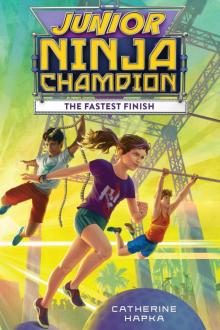 The Fastest Finish
The Fastest Finish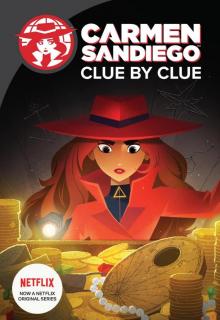 Clue by Clue
Clue by Clue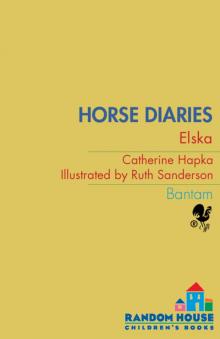 Elska
Elska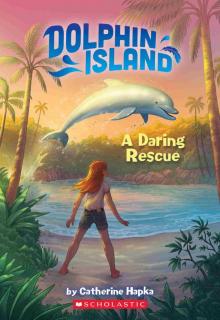 A Daring Rescue
A Daring Rescue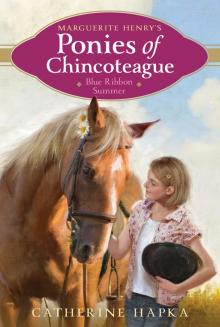 Blue Ribbon Summer
Blue Ribbon Summer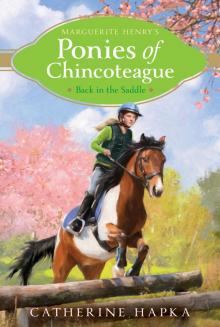 Back in the Saddle
Back in the Saddle The Road Home
The Road Home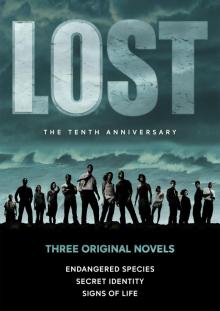 Lost: The Novels
Lost: The Novels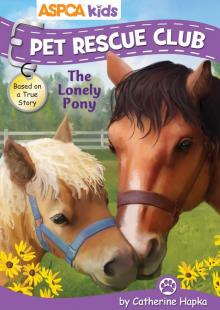 The Lonely Pony
The Lonely Pony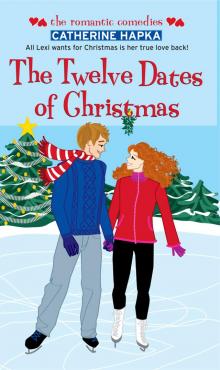 The Twelve Dates of Christmas
The Twelve Dates of Christmas No Time for Hallie
No Time for Hallie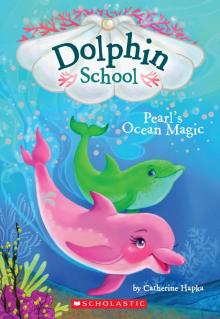 Pearl's Ocean Magic
Pearl's Ocean Magic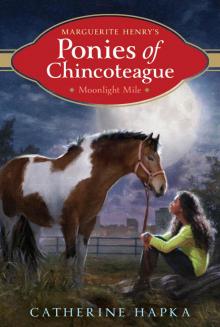 Moonlight Mile
Moonlight Mile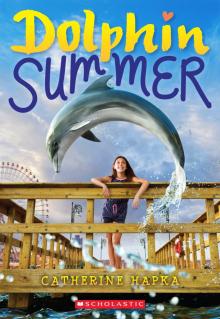 Dolphin Summer
Dolphin Summer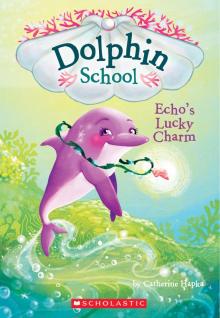 Echo's Lucky Charm
Echo's Lucky Charm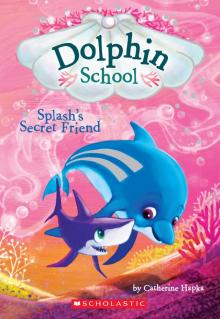 Splash's Secret Friend
Splash's Secret Friend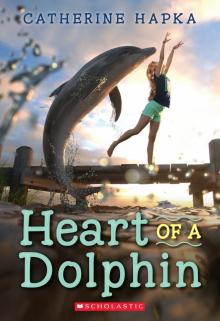 Heart of a Dolphin
Heart of a Dolphin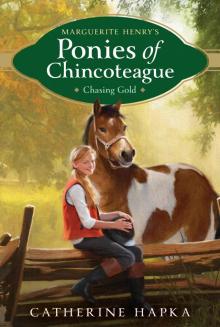 Chasing Gold
Chasing Gold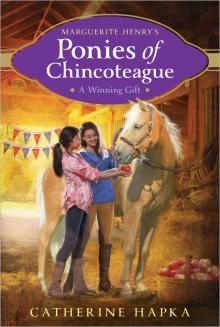 A Winning Gift
A Winning Gift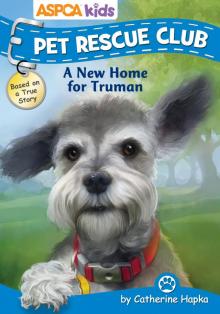 A New Home for Truman
A New Home for Truman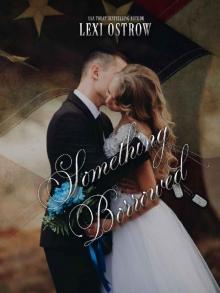 Something Borrowed
Something Borrowed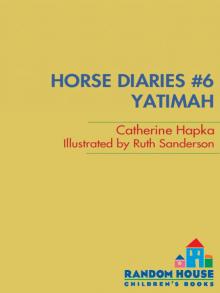 Yatimah
Yatimah At First Sight
At First Sight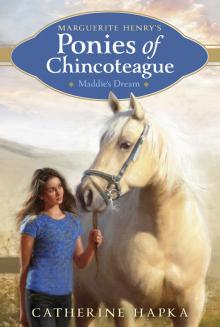 Maddie’s Dream
Maddie’s Dream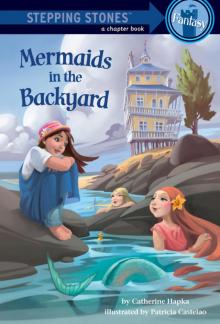 Mermaids in the Backyard
Mermaids in the Backyard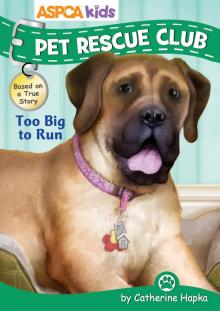 Too Big to Run
Too Big to Run Off the Charts
Off the Charts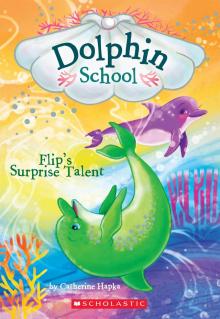 Flip's Surprise Talent
Flip's Surprise Talent